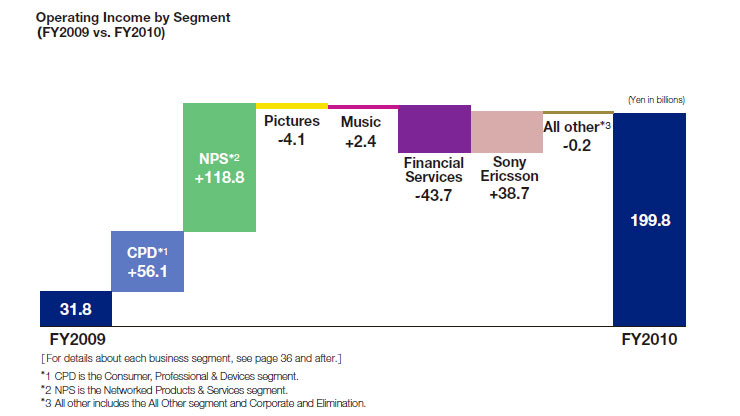5 reasons Apple won't become Sony

Forrester CEO George Colony argued that Apple is going to turn out a lot like Sony — a consumer electronics juggernaut that has lost its way and turned out to be a complete mess.
Colony's argument, which raised a bit of a ruckus, has a familiar contrarian ring to it. You set up an argument, sound very rational and people buy into it. Bearish arguments always sound better. I've had my share of bearish arguments and bets, only to find out you can sound pretty darn good and still be extremely wrong.
The crux of Colony's case is that Apple was a charismatic organisation that revolved around Steve Jobs. Colony said:
Apple's momentum will carry it for 24 to 48 months. But without the arrival of a new charismatic leader, it will move from being a great company to being a good company, with a commensurate step down in revenue growth and product innovation. Like Sony (post-Morita), Polaroid (post-Land), Apple circa 1985 (post-Jobs) and Disney (in the 20 years post-Walt Disney), Apple will coast, and then decelerate.
Now this isn't a huge leap to make. Apple is at the top of the mountain in tech. That reality usually means there's only one place to go. Of course, Apple will slip somewhere. Every company does. But Colony argues that Apple will be like Sony. Here are five reasons — that have nothing to do with charisma — why Apple won't become Sony 2.0.
1. Apple isn't a siloed conglomerate
One reason why Apple won't be Sony is because the organisational structure is completely different. Sony's business units break down like this: content (movies and music), games, TVs, consumer electronics, smartphones and financial services. Sony's problems largely stem from a lack of coordination between its units. Apple is vertically integrated. Colony's argument would have more merit if Apple suddenly started developing movies.
When Apple's annual report has a chart like this, you can start the worrywart parade.

(Credit: Sony)
2. Connective tissue
Apple's products and services are all integrated and designed to couple hardware, software and design. Sony had no connective tissue. Even Apple's likely foray into television will have glue connecting the new product to other products like the iPad, iPhone and Mac. This connective tissue shouldn't be underestimated. Apple has spent decades with its integration approach.
3. Supply-chain prowess
Apple dominates the technology supply chain like no other company in recent memory. Flash memory is dominated by Apple. Apple can use Foxconn as if it is its own manufacturing arm. Apple can dictate terms with suppliers, grab LCD screen supplies and procure parts like no other. Colony partially dismisses Cook's charisma and creativity. I'd argue that he's just looking at the wrong part of the company. Apple's supply chain — largely created by Cook — is a work of art.
4. Preparation and institutionalised culture
Apple's biggest advantage leading into the post-Jobs era is that it saw everything coming. Jobs didn't die suddenly. The company created Apple University, and is institutionalising product design. On Apple's most recent earnings conference call, Cook was asked about the merger of tablets and laptops. He said:
Well, I think anything can be forced to merge. But the problem is that the products are about trade-offs. And you begin to make trade-offs to the point where what you have left at the end of the day doesn't please anyone. And you can converge a toaster and a refrigerator, but those things probably not going to be pleasing to the user.
It's unclear whether Apple has taken the Jobs culture and institutionalised it, but the company is more prepared than any earlier company you could compare it to.
5. An obvious, untapped market
Let's say Colony is correct and Apple simply coasts. Well, guess what? Apple is encroaching on the enterprise market without really trying. Apple could theoretically slip in the consumer market and make up its profit and margins by dealing more directly with businesses. Sony had no obvious slam dunk ahead. Also don't forget Cook is a former IBMer. He knows the enterprise.
Via ZDNet US